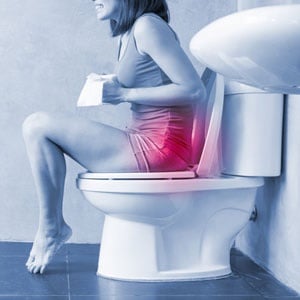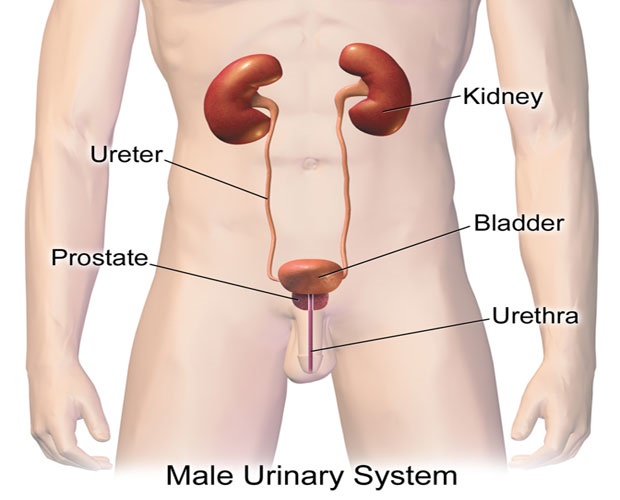
Alternative names: urinary incontinence, faecal incontinence, anal incontinence, bowel incontinence, accidental bowel leakage
Incontinence refers to a lack of voluntary control over urination or defecation, and is broadly divided into two categories:
1. Urinary incontinence (UI). This refers to a lack of voluntary control over urination. You lose bladder control and leak urine at socially unacceptable times. It’s rarely life threatening, but UI can have a great impact on your psychological and social wellbeing.
Urination is controlled by the coordination of the brain, nerves, spinal cord as well as the urinary channel or tract (the kidneys, ureter, bladder, sphincter mechanism, and urethra). If any of these components malfunction or get damaged, it can result in UI. As such, UI isn’t a disease, but rather a symptom of a disease process.
2. Faecal incontinence (FI). This refers to a lack of voluntary control over defecation. If you’re affected, you’ll lose control of bowel movements, and leak solid or liquid bowel content at inappropriate times. If you have anal incontinence, you leak all bowel content (solid, liquid and gas).
FI ranges from an occasional involuntary leakage of stool while passing wind to a total loss of bowel control. Some people feel the urge to have bowel movements but are unable to reach a toilet in time. Others don’t experience the sensation of a pending bowel movement and completely lose bowel control.
FI isn’t a condition or illness in itself, but rather a sign or symptom of a condition. Even though it’s generally not life-threatening, it can have a negative impact on one’s self-esteem, emotional wellbeing and quality of life. The upside is that it isn’t a normal part of ageing and usually treatable.
How is urinary incontinence categorised?
The only two functions of the bladder are to store and to expel urine in a coordinated fashion, under appropriate circumstances, via the urethra (the tube that carries urine from the bladder out of the body).
The bladder needs to be of adequate capacity and compliance in order to store urine, while the tone within the bladder neck and sphincter (valve) must work in such a way that leakage of urine from the bladder is prevented.
When you urinate, your bladder muscles must contract while the sphincter relaxes in a coordinated fashion. Incontinence can be classified according to the mechanism causing the leakage of urine, or according to the symptoms.
Note that a person can present with more than one symptom at a time.
The main types of urinary incontinence are:
- Stress incontinence
This leakage of urine is associated with episodes of increased intra-abdominal pressure (e.g. when you cough or sneeze). It’s caused by a loss of bladder neck and urethral support, or inherent sphincter deficiency.
- Urge incontinence
This leakage of urine is associated with a great desire to urinate, which cannot be suppressed. It’s associated with symptoms of urgency and frequency. The bladder is incapable of storing adequate amounts of urine, because it’s either too small or unstable.
- Mixed urinary incontinence
When you have this type of incontinence, you have symptoms of both stress and urge incontinence (as described above).
- Overflow incontinence
This type of incontinence is associated with chronic retention of urine. The bladder is permanently full and distended. The kidneys continue to produce urine and the excess spills out of the urethra, much like a dam that’s overflowing.
Overflow incontinence is associated with a poor urine stream and difficulty passing urine. Chronic retention is either due to bladder outlet obstruction or bladder muscle dysfunction. Bladder outlet obstruction is relatively common in elderly men, but rare in women.
- Total incontinence
Total incontinence is the continuous leakage of all urine. It’s most often caused by a vesicovaginal fistula, which is an abnormal communication (or passage) between the bladder and the vagina.
Read more:
Symptoms of incontinence
Reviewed by Dr Dakalo Muavha, Specialist in Obstetrics & Gynaecology, MBChB DipObs FCOG Mmed, University of Cape Town and Groote Schuur Hospital. May 2018.




 Publications
Publications
 Partners
Partners











